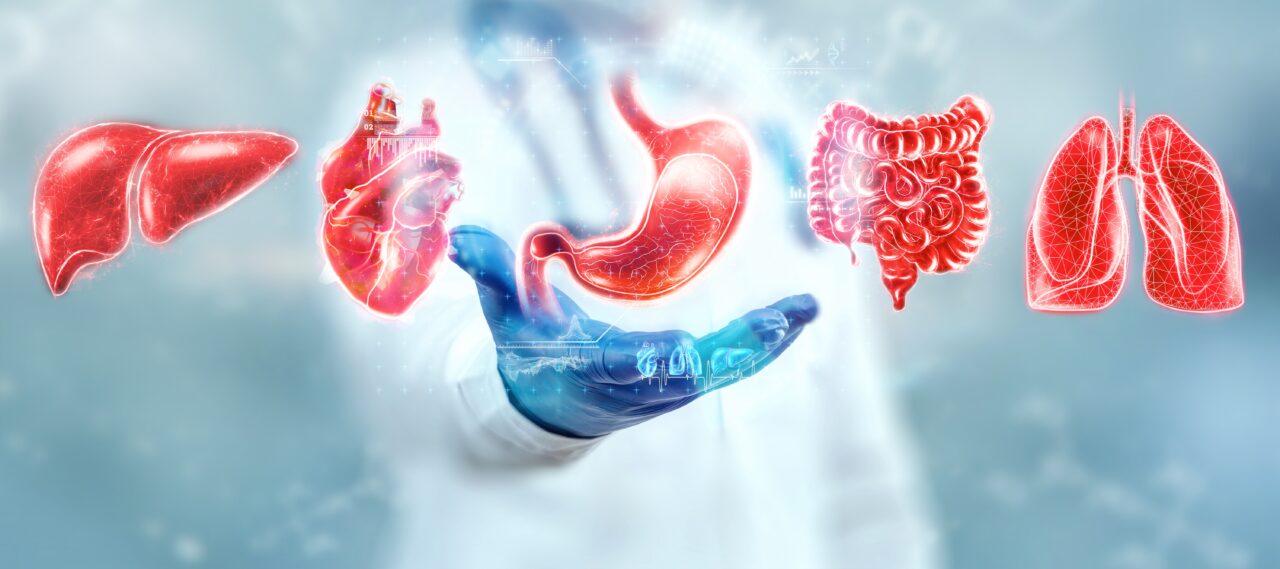
Understanding the Challenges and Advocating for Equity
Organ transplantation is a critical medical procedure that saves countless lives annually. However, the demand for viable organs far exceeds the available supply worldwide. This scarcity leads to significant challenges for individuals in need of transplants, contributing to their suffering and the disparity in access, especially among different racial groups.
There are various reasons why people suffer from organ failure and subsequently require transplants. Chronic diseases such as heart disease, kidney disease, liver cirrhosis, and respiratory illnesses can lead to organ failure over time. Additionally, genetic conditions, accidents causing severe injuries, infections, and other medical complications may necessitate organ transplantation.
Despite advancements in medical technology and increased awareness about organ donation, the supply of available organs for transplantation falls significantly short of meeting the demand. This shortage results in long waiting lists for potential recipients, leading to prolonged suffering and health deterioration while awaiting a suitable donor organ.
Several factors contribute to the difficulty in accessing transplants, including socioeconomic disparities, geographical location, and racial inequalities. Studies have shown that there are disparities in access to organ transplantation based on race, with Black individuals facing more challenges in receiving timely transplants compared to their white counterparts.
These disparities are multifaceted and can stem from various reasons, including differences in access to healthcare, unequal opportunities for organ donor registration and identification, cultural perceptions, and systemic biases within the healthcare system. Such disparities perpetuate inequities, leading to a higher likelihood of adverse health outcomes for marginalized communities.
Efforts to address these issues require multifaceted approaches, including increased public education and awareness about organ donation, reforms in organ allocation systems to ensure fairness and equity, addressing implicit biases in healthcare, and advocating for better access to healthcare for underserved populations.
One of the most significant challenges in organ transplantation is the shortage of available organs for donation. This scarcity results in extensive waiting lists for individuals in need of transplants. Patients often wait for extended periods, enduring declining health and quality of life while hoping for a suitable donor match. The high demand for organs significantly outweighs the supply, leading to increased mortality rates among those awaiting transplantation.
Organ Donation and Transplantation Process:
Organ donation can occur from deceased or living donors. Deceased donation typically happens after brain death, where organs are retrieved for transplantation if the individual has consented to donate or if the family consents on their behalf. Living donors can provide organs such as a kidney or a portion of the liver or lung while still alive to help save another person’s life.
Challenges in Access to Transplantation:
Apart from the scarcity of organs, various factors contribute to challenges in accessing transplantation. Socioeconomic disparities, inadequate healthcare access, geographical location, insurance coverage, and racial disparities impact an individual’s ability to undergo a transplant. Minority groups, especially Black individuals, face disparities in access to transplantation due to systemic biases, lack of resources, and barriers in the healthcare system.
We must learn to live and have compassion towards each other not force the natural world to live with us. If you’re curious to learn more, read on.

In a parallel narrative, individuals suffering from organ failure endure an excruciating wait for a second chance at life through organ transplantation. The demand for life-saving organs far exceeds the available supply, leaving many patients languishing on waiting lists, their lives hanging in the balance.
Patients in need of heart, lung, liver, kidney, pancreas, and intestine transplants experience a daunting reality as they confront the challenges of organ shortage. Chronic illnesses, genetic conditions, accidents, and other medical complexities necessitate these vital procedures. However, the scarcity of donated organs presents a harsh reality for those hoping for a chance at survival.
These patients face an uphill battle, often spending months, if not years, on waiting lists, grappling with declining health and diminished quality of life. Each passing day brings the sobering realization that their future hinges on the availability of an organ match from a deceased or living donor. Unfortunately, for many, this match may never come in time.
The emotional and physical toll on patients and their families is profound. The uncertainty, anxiety, and anguish of waiting for a life-changing transplant weigh heavily on their mental and emotional well-being. For some, the clock ticks away relentlessly, and the wait becomes a race against time, with the outcome uncertain.
The disparities in access to transplantation further compound the anguish for many. Socioeconomic factors, geographical location, and racial inequalities contribute to uneven access to organs. Studies have shown that minority groups, particularly Black individuals, face barriers in accessing timely transplants, highlighting systemic disparities within the healthcare system.
In contrast to the abundance of compassion and willingness to donate, there remains a significant gap between the number of donors and the increasing demand for organs. Encouraging organ donation, addressing misconceptions, and advocating for equitable organ allocation systems are crucial steps in narrowing this gap and providing hope to those awaiting transplants.
In conclusion, the challenges faced by wild horses in preserving their existence and the agonizing wait endured by patients in need of organ transplants underline the intricate nature of conservation efforts and healthcare disparities. Both narratives reflect the need for thoughtful, compassionate, and proactive approaches to safeguarding the future of these vulnerable populations. Only through concerted efforts, awareness, and advocacy.
Government Initiatives and Support for Organ Transplant Patients
Similarly, regarding patients in need of organ transplants, governments play a pivotal role in facilitating access to life-saving treatments. Government initiatives are critical to addressing the disparities and challenges faced by individuals awaiting transplants.
Governments around the world implement various programs and policies aimed at improving organ donation rates, ensuring equitable access to transplantation, and providing financial support for patients in need. For instance, initiatives promoting organ donor registration, public awareness campaigns, and legislation supporting deceased and living organ donation have been pivotal in increasing the pool of available organs for transplantation.
Healthcare systems in many countries work towards creating fair and transparent organ allocation systems, aiming to prioritize patients based on medical need rather than socioeconomic status or racial background. Governments often collaborate with healthcare institutions, nonprofit organizations, and transplant centers to streamline processes, reduce waiting times, and improve the overall transplant infrastructure.
Financial assistance programs, including public health insurance coverage or government-funded assistance for transplant-related expenses, are also in place in some regions to support patients undergoing transplantation. These initiatives aim to alleviate the financial burden on patients and their families during the transplant process.
However, despite these efforts, the shortage of available organs and disparities in access to transplantation persist, necessitating continued advocacy, policy reforms, and collaborative efforts between governments, healthcare institutions, and advocacy groups to address these challenges comprehensively.
In summary, while measures exist to protect wild horses and support patients needing transplants, both areas face ongoing complexities and challenges. Continual efforts to refine policies, improve management strategies, and advocate for equitable solutions are essential in ensuring the well-being and future sustainability of both wild horse populations and individuals in need of life-saving organ transplants.
Patients’ Families and Understanding Their Struggles
Similarly, in the realm of organ transplantation, patients and their families endure immense emotional turmoil, often facing a rollercoaster of emotions, uncertainties, and challenges. While the focus primarily remains on the patient’s physical health and transplant procedure, the psychological and emotional toll on families can be profound and often overlooked.
Families of patients waiting or undergoing organ transplants experience a spectrum of emotions—from hope and anticipation to fear, anxiety, and sometimes helplessness. Witnessing a loved one battle a life-threatening illness while navigating the complexities of organ transplantation takes an emotional toll on family members.
Communication between healthcare providers and families is vital, yet the depth of the emotional struggle they face may not always be fully understood or addressed. Families often grapple with feelings of powerlessness, the weight of decision-making, financial stress, and the uncertainty of the outcome for their loved one.
Support systems, including counseling services, support groups, and resources that provide emotional guidance and practical assistance, are crucial for families in these situations. Empathy, compassion, and a deeper understanding of their experiences can help healthcare professionals offer more comprehensive support to patients’ families throughout the transplant journey.
In conclusion, the journey of a transplant patient and their family is an emotional saga filled with highs and lows, challenges, and triumphs. It’s a testament to the resilience of the human spirit and the unyielding power of hope, love, and support that sustains them through the most trying times.
This emotional rollercoaster marked by uncertainty, hope, and resilience, defines the extraordinary journey of transplant patients and the unwavering support of their families.
That is why we need your voices.